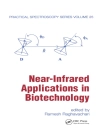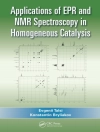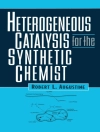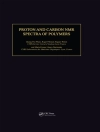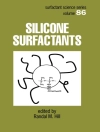The pharmaceutical industry is one of the most important industries
in the world, offering new medicines, vaccines, and cures to a
global population. It is a massive industry, worthy of a deep
and thorough examination of its processes and chemistry, with a
view toward sustainability. The authors describe what is and
isn’t truly sustainable, offering a new approach and a new
definition of the sustainability of pharmaceutical and chemical
engineering and the science behind it. This is a cutting-edge
work, aimed at engineers, scientists, researchers, chemists, and
students.
สารบัญ
Preface xvii
1 Introduction 1
1.1 Opening Remarks 1
1.2 Are We Trained to Develop Contempt for Conscience and Addiction to Selfi shness? 4
1.3 Metadata 5
1.4 INTRODUCING CHAPTER TWO: What’s Behind Giving Up Honey and Promoting Aspartame as the Cure, i.e., Dumping the Natural Option in Favour of the Artifi cial One? 8
1.5 INTRODUCING CHAPTER THREE: Are the Premises of New Science Suffi cient For Uncovering or Establishing The Cause of Anything? 25
1.6 INTRODUCING CHAPTER FOUR: For How Long We Have Been Lied To? 28
1.7 INTRODUCING CHAPTER FIVE: A Starting-Point for Society-Wide Corruption 29
1.8 INTRODUCING CHAPTER SIX: Deconstruction of the Foundations of Aphenomenal Science in the Works of Newton (Part A) and Einstein (Part B) 30
1.9 INTRODUCING VOLUME TWO: The Way Out 41
1.10 INTRODUCING CHAPTER SEVEN: Concluding the Discussion-So-Far 48
1.11 INTRODUCING CHAPTER EIGHT: About the References and Bibliography, or: Now Previous Knowledge Can Help 50
Appendix 1.1 51
PART ONE The Political Economy of U.S. Government-led Struggles to Control or Suppress Alcohol, Tobacco and Drug Addiction 51
Appendix 1.2 60
PART TWO Delinearizing the Anti-Colonial Origins of the Corporatized American State and Its Consequences for Contemporary Science and Technology 60
2 Current State of the World of Big Pharma 65
2.1 Summary 65
2.2 Introduction 66
2.3 How We Got Here: A Delinearized History of the Information Age 70
2.4 Sociological Degeneration 90
2.5 The Deadliest 10 Diseases 94
2.6 Paradox and New Science 114
2.7 The Cost Of Drugs 128
2.8 ‘Non-Prescription’ Drugs 131
3 HSS®A® Degradation in New Science 143
3.1 Summary 143
3.2 Introduction 144
3.3 The HSS®A® (Honey –> Sugar –> Saccharin® –> Aspartame®) Pathway 147
3.4 The Sugar Culture and Beyond 172
3.5 The Culture of the Artifi cial Sweetener 177
3.6 The Culture of Aspartame 194
3.7 The Honey-Sugar-Saccharin-Aspartame Degradation in Everything 227
4 The Hopelessness of New Science 291
4.1 Summary 291
4.2 Introduction 292
4.3 Colony Collapse Disorder (CDC) 294
4.4 Incurable Disease 325
4.5 Diseases with Implications for Fundamental Theoretical Concerns (Mass, Energy and HTM) 384
4.6 The Need for the Science of Intangibles 397
4.7 The Need for Studying the Time Dimension in Implicit Form 404
4.8 Assessing the Overall Performance of a Process 411
4.9 Aphenomenal Theories of Modern Era 422
4.10 The Law of Conservation of Mass and Energy 425
4.11 Toward Uncovering Knowledge 432
4.12 Conclusions 435
5 Mass, Energy and Time: A Delinearized History 437
5.1 Summary 437
5.2 Introduction 438
5.3 The Energy Crisis 440
5.4 Gas Hydrates 485
5.5 Science of Healthy Energy and Mass 507
Appendix 548
6 Newton & Einstein: A Delinearized Deconstruction 591
6.1 Summary 591
6.2 Introduction 591
6.3 Historical Context 595
6.4 Time Conceptions, Tangible-Intangible Nexus, and Social Roles of Knowledge 610
6.5 What is New Versus what is Permitted: Science and the Establishment? 630
6.6 Deconstruction of Einstein’s concept of reality, mass, time, and energy 648
6.7 Conclusions 662
7 The Nature-Science Approach: Conclusions of Book I 665
7.1 Summary 665
7.2 Introduction 667
7.3 Struggle for Social Reform: Internal and External Factors 674
7.4 Consequences of Nature-Science for Classical Set Theory and Conventional Notions of Mensuration 676
7.5 Conclusions 678
7.6 The Need for Change 709
7.7 The Nature Science Approach 710
References and Bibliography 713
Index 773
เกี่ยวกับผู้แต่ง
M. R. Islam, Ph D is a world-wide consultant on environment and energy-related issues. Dr. Islam is known as the most published engineer in the world. He is credited to have coined terms, such as ‘green petroleum’ and ‘sustainable petroleum development’ at a time when ‘sustainable petroleum’ was considered to be an oxymoron. Dr. Islam’s most notable contributions are in the areas of sustainability, environmental integrity, and knowledge modeling, on which topic he has written dozens of books and over 700 research papers.
Jaan S. Islam has been active in research on the topics of science and social science. He is a co-author of the theory of mass, energy, time, and human thought material that formed the core of a number of books, including the current series. His previous works include Reconstituting the Curriculum (with M.R. Islam & Gary Zatzman).
Gary M. Zatzman has decades of investigative journalism and research experience, dozens of articles in technical journals, and four previously published books:?Sustainable Resource Development, Sustainable Energy Pricing, ?Economics of Intangibles?(with M.R. Islam), and?Reconstituting the Curriculum (with M.R. & J.S. Islam).
M. Safiur Rahman, Ph D is the principal scientific officer at Bangladesh Atomic Energy Commission in the field of environmental engineering. Since 2000, Dr. Rahman has been carrying out research works related to the distribution of toxic trace elements in surface and ground water, food chains and the environment for many government agencies and has published over 100 scientific articles and several books.
M.A.H. Mughal is a prominent philanthropist, author, speaker, mentor and a business consultant with 22 years of global experience with some of the world’s top companies. He is the author of many articles and is a Chartered Fellow of the British Computer Society and holds many professional designations.



